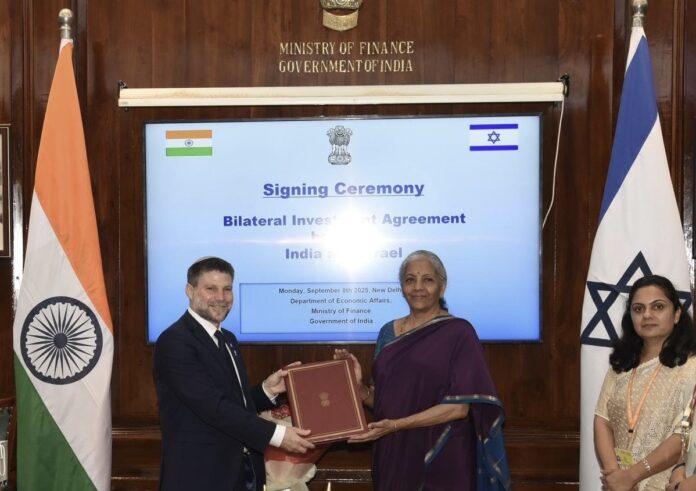India has signed a Bilateral Investment Agreement (BIA) with Israel, deepening economic ties with the occupying Zionist state as it faces mounting international condemnation for the ongoing genocide in Gaza.
The deal was finalised during Israel’s far-right Finance Minister Bezalel Smotrich’s visit to India on Monday 8 September. Smotrich, a senior figure in Prime Minister Benjamin Netanyahu’s regime, has been sanctioned by multiple countries for openly advocating for genocide in Gaza and the ethnic cleansing of Palestinian towns.
Despite growing international calls for sanctions, accountability, and an arms embargo, the Indian government under Narendra Modi’s BJP welcomed Smotrich and formalised stronger investment ties.
The Students Islamic Organisation of India (SIO) condemned the move, saying: “By welcoming Israel’s far-right Finance Minister Bezalel Smotrich, sanctioned by multiple countries for his genocidal incitement against Palestinians, the BJP government has chosen to side with an apartheid regime killing tens of thousands of Palestinians.
“At a time when the world is calling for sanctions and accountability for war crimes in Gaza, India’s government has shamefully deepened economic ties with the oppressor.”
SIO further accused the Modi government of betraying India’s historic anti-colonial legacy and aligning itself with “genocide and occupation”. The group called on democratic voices across the country to resist complicity and reaffirm solidarity with Palestine.
India’s historic support for Palestine
For decades, India was a strong supporter of the Palestinian struggle for statehood, rooted in its own anti-colonial history. Leaders such as Jawaharlal Nehru and Indira Gandhi consistently backed the Palestinian cause at the United Nations, and Yasser Arafat was warmly welcomed in New Delhi. India only formally established diplomatic ties with Israel in 1992, balancing that relationship with support for Palestine.
However, since Narendra Modi came to power in 2014, New Delhi has drawn closer to Tel Aviv both politically and militarily. Modi became the first Indian prime minister to visit Israel in 2017, breaking with the tradition of coupling such visits with trips to Palestine.
Prime Minister Narendra modi. Editorial credit: Saikat Paul / Shutterstock.com
India is now one of Israel’s largest arms buyers, purchasing drones, missiles and surveillance technology. Joint ventures also extend to agriculture, water management and cyber security.
India’s decision comes at a time when Israel faces unprecedented global criticism for its assault on Gaza.
South Africa has taken Israel to the International Court of Justice (ICJ), accusing it of committing genocide. Several European countries, including Ireland, Norway and Spain, have recognised the State of Palestine. Meanwhile, growing movements across the world are calling for boycotts and sanctions against Israel.
By moving closer to Israel under these circumstances, analysts say India risks isolating itself from much of the Global South and from Muslim-majority countries that continue to see Palestine as a central issue of justice. The Indian government has not yet responded to the criticism.
According to Gaza’s Health Ministry, Israel has killed more than 64,500 Palestinians and injured over 163,000 since its genocidal onslaught began in October 2023.
Parts of the besieged enclave has been hit by famine, as food, medicine and humanitarian aid continues to be blocked.
The article appeared in 5pillarsuk


